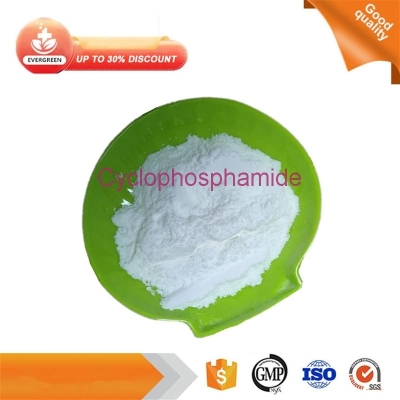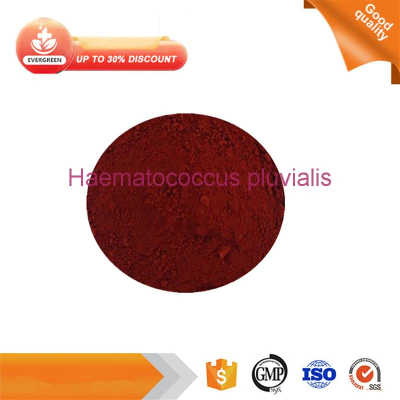-
Categories
-
Pharmaceutical Intermediates
-
Active Pharmaceutical Ingredients
-
Food Additives
- Industrial Coatings
- Agrochemicals
- Dyes and Pigments
- Surfactant
- Flavors and Fragrances
- Chemical Reagents
- Catalyst and Auxiliary
- Natural Products
- Inorganic Chemistry
-
Organic Chemistry
-
Biochemical Engineering
- Analytical Chemistry
- Cosmetic Ingredient
-
Pharmaceutical Intermediates
Promotion
ECHEMI Mall
Wholesale
Weekly Price
Exhibition
News
-
Trade Service
Proton pump inhibitors (PPIs) are commonly used drugs for the treatment of peptic ulcers.
However, many clinical trials have concluded that the "abuse" of PPIs will affect the efficacy of anti-tumor therapy
New research suggests that the use of antibiotics and PPIs may be associated with poor outcomes in cancer patients treated with ICIs
This article published on Front Immunol sheds some light on us
Patients who received ATB within 60 days before ICI initiation were included in the ATB+ group
Final results: PFS at 6 months was 56.
An article published in Annals Of Oncology on the efficacy of antibiotics, proton pump inhibitors and immunotherapy using pooled data from the Phase II POPLAR (NCT 01903993) and Phase III OAK (NCT 02008227) trials.
This retrospective analysis used pooled data from the phase II POPLAR (NCT 01903993) and phase III OAK (NCT 02008227) trials, which included 1512 patients with previously treated non-small cell lung cancer (NSCLC) who were randomly assigned to receive Ate fuzumab (n/757) or docetaxel (n/755)
The results showed that 169 patients (22.
A study based on the SEER database showed that the proportion of combined use of proton pump inhibitors (PPIs) during TKIs treatment was as high as 22% for elderly cancer patients ≥ 65 years old
Chu et al.
Niho et al conducted a retrospective study, including and analyzing 117 advanced NSCLC patients taking gefitinib 250 mg/d, divided into an acid-fast group and a non-acid-fast group for treatment, and the results showed that the acid-fast group (PPIs The median PFS was 8.
In addition, another study on gefitinib also suggested that combination therapy with PPIs increases the risk of death in patients
A clinical study evaluating the effect of PPIs on the bioavailability of dacomitinib in 24 healthy male volunteers showed that rabeprazole delayed the median tmax of dacomitinib, AUCinf and Cmax, respectively The decrease was 71.
A 2016 study in JAMA Oncology aimed to determine whether proton pump inhibitors reduce the efficacy of capecitabine
Proton pump inhibitor use was determined by medication records, and progression-free survival (PFS) and overall survival (OS) were compared between patients receiving PPIs and those not receiving PPIs
The results showed that among the 545 patients included in the analysis (median age 60 years, 406 males), 229 patients received PPI (lapatinib, n=110; control group, n=119), evenly distributed between two groups.
between groups
.
Among patients receiving the CapeOx regimen, the median PFS between the proton pump inhibitor and no proton pump inhibitor groups (4.
2 months vs.
5.
7 months; HR=1.
55; 95% CI 1.
29-1.
81, P<0.
01) and Median OS (9.
2 months vs.
11.
3 months; HR=1.
34; 95% CI, 1.
06-1.
62, P=0.
04) and disease control rate (72% vs.
83%; P=0.
02)
.
Patients receiving PPIs also showed shorter PFS in multivariate analysis (P < 0.
01)
.
CONCLUSIONS: Proton pump inhibitors may increase gastric pH, thereby reducing the efficacy of capecitabine
.
However, the study did not examine pharmacokinetics and circulating drug levels, so this analysis cannot be directly linked to a potential decrease in capecitabine absorption
.
The same phenomenon has also been observed in the tumor-targeted therapy of tyrosine kinase inhibitors erlotinib and sunitinib
.
So can cancer patients use PPIs?
In order to further standardize the clinical application of proton pump inhibitors (PPIs) and promote rational drug use, the state has formulated the Guidelines for the Clinical Application of Proton Pump Inhibitors (2020 Edition)
.
The article clearly pointed out that chemotherapy drugs and glucocorticoids can cause mucosal damage, indigestion, and stress ulcers in patients
.
In the course of tumor chemotherapy, proton pump inhibitors can be considered to improve the symptoms of heartburn and nausea, and improve the quality of life of tumor patients
.
However, proton pump inhibitors are not recommended for prophylaxis prior to routine chemotherapy
.
The following guidelines for the preventive use of PPIs also make clear restrictions
The "Expert Consensus on Proton Pump Inhibitor Prophylactic Application 2018" pointed out that short-term intravenous application of PPIs can be used in cancer patients when intravenous chemotherapy drugs with the risk of emesis are used
.
In 2019, "Expert Guidance on Prophylactic Use of Proton Pump Inhibitors and Prescription Reduction" pointed out: (1) Although several domestic and foreign consensuses on antiemetics of cancer chemotherapy mentioned that PPI can be used for the prevention and treatment of emesis after chemotherapy, based on the current evidence, it is not recommended to use PPIs for chemotherapy.
PPIs are recommended in routine chemotherapy to prevent vomiting or possible upper gastrointestinal symptoms
.
②If the patient has gastrointestinal symptoms, short-term PPI can be used for symptomatic treatment, and oral dosage forms should be given as much as possible
.
③ If secondary gastrointestinal bleeding should be treated with therapeutic medication under the guidance of a specialist
.
In May 2020, the "Expert Consensus on the Optimal Application of Proton Pump Inhibitors" pointed out that the optimal recommendations for the prevention of gastric mucosal injury caused by tumor chemotherapy are: the routine use of PPIs during chemotherapy to prevent gastric mucosal injury is not recommended; the use of PPIs in tumor patients has the risk of emesis.
When the chemotherapy drugs are used, if accompanied by stomach discomfort, PPIs can be used for symptomatic treatment for a short period in the antiemetic program until the end of chemotherapy
.
Based on the above evidence-based medical evidence, proton pump inhibitors must be used with caution during tumor treatment
.
references
1.
Giordan Q, Salleron J, Vallance C, et al.
Impact of Antibiotics and Proton Pump Inhibitors on Efficacy and Tolerance of Anti-PD-1 Immune Checkpoint Inhibitors.
Front Immunol.
2021 Oct 27;12:716317.
2.
Pinato DJ, Howlett S, Ottaviani D, et al.
Association of Prior Antibiotic Treatment With Survival and Response to Immune Checkpoint Inhibitor Therapy in Patients With Cancer.
JAMA Oncol.
2019 Dec 1;5(12):1774-1778.
3.
Chalabi M, Cardona A, Nagarkar DR, et al.
Efficacy of chemotherapy and atezolizumab in patients with non-small-cell lung cancer receiving antibiotics and proton pump inhibitors: pooled post hoc analyses of the OAK and POPLAR trials.
Ann Oncol, 2020, 31(4): 525-531.
4.
Sharma M, Holmes HM, Mehta HB, et al.
The concomitant use of tyrosine kinase inhibitors and proton pump inhibitors: Prevalence, predictors, and impact on survival and discontinuation of therapy in older adults with cancer.
Cancer, 2019, 125( 7): 1155-1162.
doi: 10.
1002/cncr.
31917
5.
Chu MP, Ghosh S, Chambers CR, et al.
Gastric acid suppression is associated with decreased erlotinib efficacy in non–small-cell lung cancer[J].
Clinical Lung Cancer, 2015, 16(1): 33-39
6.
Niho S, You Y, Zenke k, et al.
Clinical impact of gastric acidsuppressing medication use on the efficacy of erlotinib and gefitinib in patients with advanced non-small-cell lung cancer harboring EGFR mutations[J] .
Clin Lung Cancer, 2016, 17(5), 412-418.
7.
Fang YH, Yang YH.
Concurrent proton-pump inhibitors increase risk of death for lung cancer patients receiving 1st-line gefitinib treatment-a nationwide population-based study.
Cancer Manag Res, 2019, 11: 8539-8546.
doi: 10.
2147 /cmar.
s222278
8.
Ruiz-Garcia A, Masters JC, Laure MDC, et al.
Effect of food orproton pump inhibitor treatment on the bioavailability of dacomitinib in healthy volunteers[J].
The Journal of Clinical Pharmacology, 2016, 56(2): 223- 230.
9.
Guidelines for the clinical use of proton pump inhibitors (2020 edition)
10.
Capecitabine Efficacy in Advanced Gastroesophageal Cancer.
JAMA Oncology.
June 2017 doi:10.
1001/jamaoncol.
2016.
3358.
11.
"Expert Consensus on Preventive Use of Proton Pump Inhibitors 2018"
12.
"Expert Guidance on Prophylactic Use of Proton Pump Inhibitors and Prescribing Streamlining 2019"
13.
"Expert Consensus on the Optimal Application of Proton Pump Inhibitors 2020"







